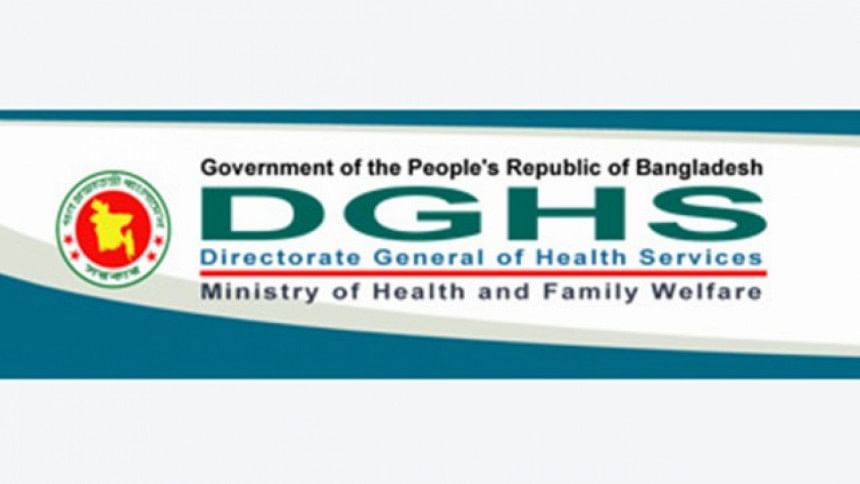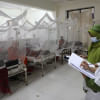Health services: Absent doctors a headache

A doctor of a government hospital in Gopalganj has been absent from work since March 16, 2020.
The authorities of Chest Disease Clinic in the southern district reported it to the Directorate General of Health Services (DGHS) six months later, even though such an incident should have been reported within 60 days as per service rules.
The DGHS then stopped paying him, and the civil surgeon of Gopalganj sent another doctor to work at the facility. But officials concerned at the directorate say they still do not know the first doctor's whereabouts.
After joining government service in August 2014, the doctor went on a two-year study leave on March 1, 2017. Upon return, he worked at the DGHS office in the capital's Mohakhali for eight months before being transferred to Gopalganj in 2020.
"The medical officers had been irregular at work from the beginning. When we asked him to be regular, he simply left. Patients were deprived of services for months until we sent another physician to the clinic," said Niaz Mahmud, civil surgeon of Gopalganj.
The official contact number of the doctor was found switched off.
According to DGHS officials, many doctors remain absent without leave and continue to be paid by the government. And, thousands of patients get deprived of health care.
Samiul Islam, director (administration) at the DGHS, said "Absence without permission badly hampers hospital operations."
When doctors remain absent, the authorities in most cases take three to six months to replace them.
On many occasions, the healthcare facilities take months to report the absentee.
There are around 25,000 physicians engaged in hospital service under the health directorate.
But there is no data on the exact number of such absentee doctors. Samiul said listing errant doctors was a "continuous process".
According to data from a section at the DGHS, the authorities stopped paying another doctor earlier this month, almost one and a half years after he stopped going to work.
To get a clearer picture of the issue, the DGHS on July 21 asked the chiefs of health facilities across the country to report doctors absent without leave.
As of September 11, the administration wing of the directorate received names of 161 doctors and launched disciplinary action against 78 of them.
Of the 161, at least 116 are medical officers while the rest are senior physicians, including professors.
The monitoring wing has another list of at least 300 absentees.
Experts say the actual number of such doctors can be much larger. They also say such doctors do not get penalised timely.
Currently, at least 250 absentee doctors are yet to be meted out punishments. Some of the cases have been pending since 2007.
MANAGEMENT FAILURE
When a doctor remains absent for 30 consecutive days without permission, the facility chief is obligated to report the matter to higher authorities, health officials said.
"In many cases, however, the facility authorities do not report timely and we remain in the dark about the absent officer," Samiul said.
A senior official of the DGHS said the absentee doctors get away with the crime by colluding with the hospital authorities and administration officials.
MA Sabur, a health care expert, said, "This is a management failure. We have advanced technology available in the market through which the health directorate can see whether the doctors are present or not."
Besides, there is a monitoring system in place. But the system is not used properly, he added.
Senior DGHS officials told this newspaper that doctors remain absent mainly due to lack of career development opportunities and timely promotions.
Doctors leave like this either to move abroad or work in private or development sectors. They just don't want to go through the lengthy process of quitting.
Government doctors willing to quit before completing the two-year "entry period" have to pay back all their salaries. Those who quit after the entry period do not get gratuity or pension benefits, officials said.
Besides, it takes between six and 12 months to properly quit the government service even though the process should be done in two months, according to the rules.
Md Ehteshamul Huq Choudhury, secretary general of Bangladesh Medical Association (BMA), blamed the health directorate and the health ministry for failing to take action against the doctors.
"This is a weakness of the authorities… Everything is defined in the job rules. But as the higher authorities have not taken action over the years, this malpractice continues," he said.
Contacted, Prof Ahmedul Kabir, additional director general (administration) at the DGHS, said, "Terminating a physician in public service is not easy. But we are sorting out those absent without leave."

 For all latest news, follow The Daily Star's Google News channel.
For all latest news, follow The Daily Star's Google News channel. 








Comments